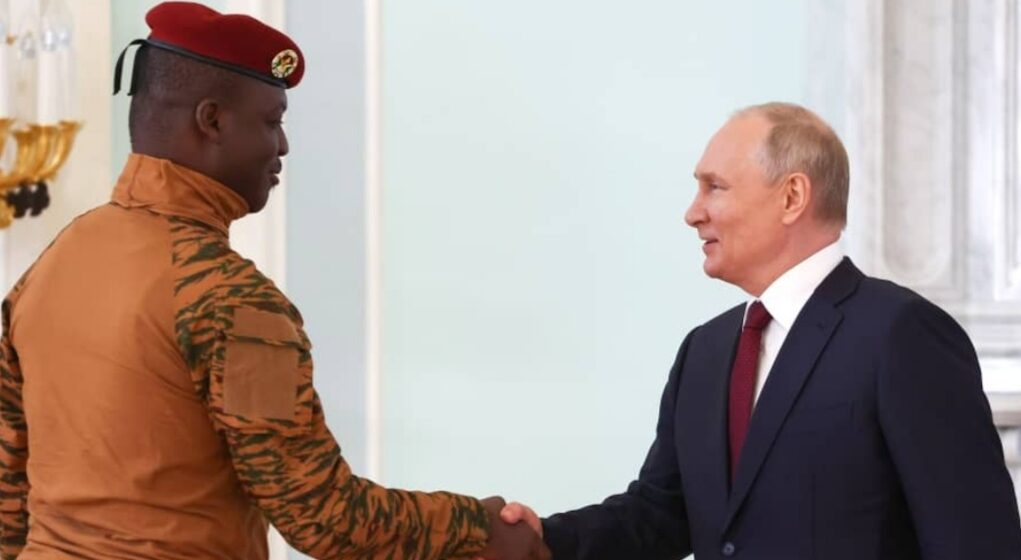Thirty-one years after shutting down its embassy in Burkina Faso, Russia has reopened its embassy in the West African country.
The move continues Russia’s recent rapprochement with Sahelian countries—Burkina Faso, Mali, Guinea, Chad, and Niger—all of whom are under military regimes with growing fractured relations with former colonialist, France.
During the reopening of the chancellery on Thursday, the Russian ambassador to Côte d’Ivoire and Burkina Faso, Alexeï Saltykov, asserted, “Today we are attending the ceremony for the resumption of activities of the Russian embassy in Ouagadougou.”
Attendees at the ceremony also included the chief of general staff of Burkina Faso’s army, Appolinaire Joachimson Kyélèm de Tambéla, the country’s prime minister, Karamoko Jean-Marie Traoré, the minister of foreign affairs, and other government officials.
During the ceremony, Burkinabe diplomat, Karamoko Jean-Marie Traoré, gave his assurance that “cooperation” between the two countries continued, noting that “the training of several of our executives” was one of the highlights of the 31-year-old Russian embassy closure.
Alexei Saltykov added that “Russia will continue to assist Burkina Faso for the training of specialists, national, civil and military executives.”
In addition, “we are determined to expand cooperation in the areas” of trade and the economy, said Mr. Saltykov.
“We hope that Burkinabe partners will gradually expand the range of products purchased from Russia, including agricultural machinery, mineral fertilisers, and equipment for the mining industry,” he continued.
Furthermore, “25,000 tonnes of wheat” representing “humanitarian aid from Russia” were “being transported to Burkina Faso”, indicated Mr. Saltykov.
The Russian diplomat, who had been living in Abidjan up until recently but had been visiting Ouagadougou frequently, continued by saying that he would take charge of the diplomatic mission in Burkina Faso until Russian President Vladimir Putin named an ambassador.
The “development” of ties with Burkina Faso has also been welcomed by the Russian Foreign Ministry.
The reopening of the Russian embassy will help “increase coordination in terms of foreign policy” and consolidate the “relationships of friendship and cooperation” uniting these two countries, the ministry writes in a press release.
The recent international scramble for Sahelian countries has been divided between China for the economy and Russia for military support, but the dwindling influence of the West—particularly France and the United States—in the region has also triggered some policy reforms to reclaim their lost grounds in the sub-region.

